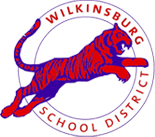5th Grade
Fifth grade is a crucial year as students prepare for middle school and beyond. At this stage, they are expected to take greater ownership of their learning, develop independence, and strengthen critical thinking, reading, writing, and problem-solving skills. Students also focus on collaboration, communication, and creativity—essential skills for success in the 21st century.
Curriculum Focus Areas
Skills Your Child Will Develop


